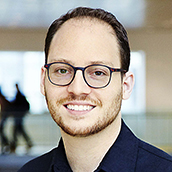
York University faculty members and graduate students will participate in an exciting series of panel discussions running this fall as part of <Immune Nations>, an evidence-based exhibition about the constructive role that art can play in public discourse around life-saving vaccines.
<Immune Nations> is the first multi-year research-based exhibition to specifically address the issue of vaccination from a collaborative, interdisciplinary perspective, attentive to the arts and its many roles for advocacy and political intervention. The outcome of a multi-year project that was developed prior to the pandemic (2014-17) and co-led by Natalie Loveless (University of Alberta) with Steven Hoffman (York University) and Sean Caulfield (University of Alberta), the exhibition explores complex issues related to the use and distribution of vaccines in the world today and the capacity of artistic research to solicit complex forms of affective engagement when dealing with difficult and divisive social and political topics such as vaccination.

Hosted at the McMaster Museum of Art, the exhibition presents features collaborative art and research projects, including original work alongside new work produced in the context of the ongoing COVID-19 pandemic.
The panel discussions feature York's Steven Hoffman, Dahdaleh Distinguished Chair in Global Governance and Legal Epidemiology, professor and director of the Global Strategy Lab; Alison Humphrey, Vanier Scholar and PhD candidate; and Caitlin Fisher, professor and director of the Immersive Storytelling Lab.
The discussions will be hosted on Zoom, and include an audience Q-and-A. All panels are free and open to the public.
Ensuring Equitable Access: Life-Saving Vaccines during COVID-19 and Beyond
Thursday, Oct. 14, 12 to 1:30 p.m.
This panel will explore the global deployment and lack of access to life-saving vaccines.
Moderator: Steven Hoffman, director, Global Strategy Lab
Panellists:
Annemarie Hou, appointed executive director, United Nations Office for Partnerships;
Alison Humphrey, Vanier Scholar and PhD candidate, York University;
Lauren Paremoer, senior lecturer, University of Cape Town; and
John-Arne Røttingen, ambassador for global health, Ministry of Foreign Affairs, Norway.
To learn more about the panellists and to register, click here.
Research-Creation and Global Crisis: Interdisciplinarity, Creativity and Collaboration
Thursday, Nov. 25, 12 to 1:30 p.m.
This panel investigates the role of research-creation in tackling pressing social and global problems.
Moderator: Natalie Loveless, associate professor of contemporary art and theory, University of Alberta
Panellists:
Ted Hewitt, president of the Social Sciences and Humanities Research Council of Canada;
Charu Kaushic, scientific director of the Canadian Institutes of Health Research Institute of Infection and Immunity, and professor in the Department of Medicine, McMaster University;
Caitlin Fisher, director of the Immersive Storytelling Lab and Professor of Cinema and Media Arts, York University;
Patrick Mahon, artist, curator and visual arts professor, Western University; and
Kim TallBear, Canada Research Chair in Indigenous Peoples, Technoscience and Environment, and professor of Native Studies, University of Alberta.
To learn more about the panellists and to register, click here.
Vaccine Confidence, Fear and Misinformation in an Age of COVID
Thursday, Dec. 9, 12 to 1:30 p.m.
A panel exploring the impact of misinformation on vaccination as well as ways of countering the negative impacts of misinformation in relation to public health.
Moderator: Sean Caulfield, Professor, University of Alberta
Panellists:
Timothy Caulfield, Canada Research Chair in Health Law and Policy, University of Alberta;
Rachelle Viader Knowles, head of international for arts and humanities, Manchester Metropolitan University;
Dr. David Price, professor and Chair of the Department of Family Medicine, McMaster University; and
Theresa Tam, chief public health officer of Canada.
To learn more about the panellists and to register, click here.
